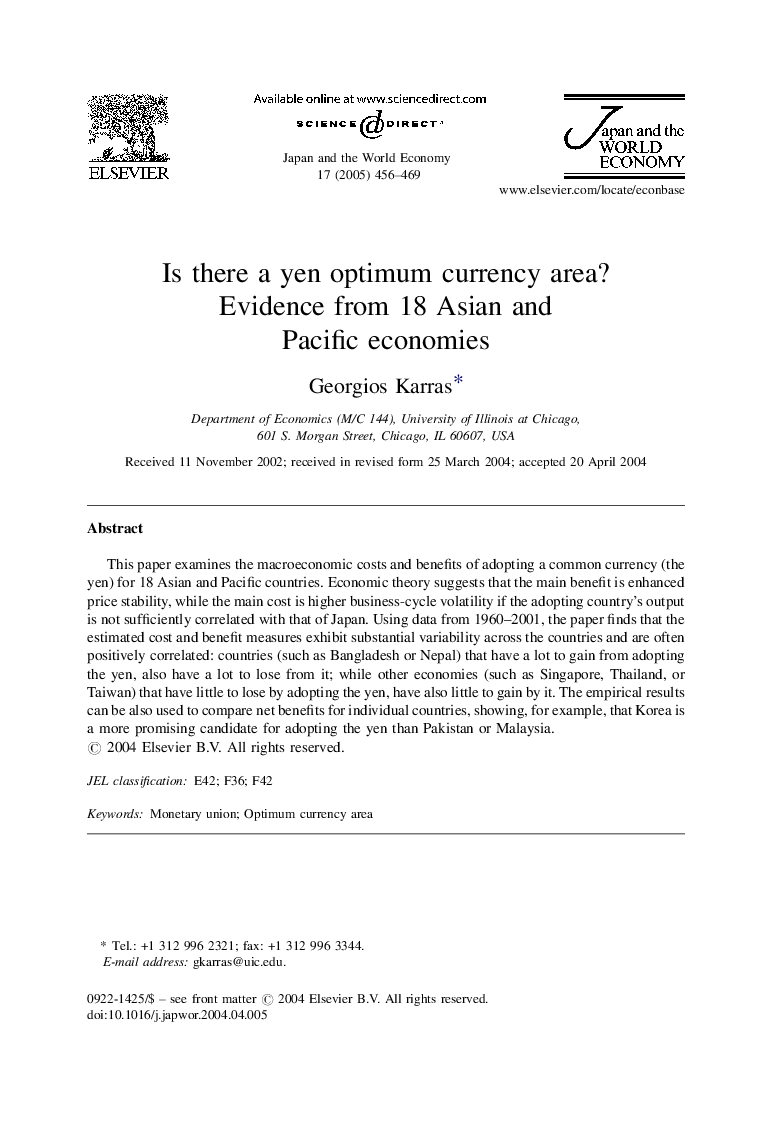| Article ID | Journal | Published Year | Pages | File Type |
|---|---|---|---|---|
| 9553135 | Japan and the World Economy | 2005 | 14 Pages |
Abstract
This paper examines the macroeconomic costs and benefits of adopting a common currency (the yen) for 18 Asian and Pacific countries. Economic theory suggests that the main benefit is enhanced price stability, while the main cost is higher business-cycle volatility if the adopting country's output is not sufficiently correlated with that of Japan. Using data from 1960-2001, the paper finds that the estimated cost and benefit measures exhibit substantial variability across the countries and are often positively correlated: countries (such as Bangladesh or Nepal) that have a lot to gain from adopting the yen, also have a lot to lose from it; while other economies (such as Singapore, Thailand, or Taiwan) that have little to lose by adopting the yen, have also little to gain by it. The empirical results can be also used to compare net benefits for individual countries, showing, for example, that Korea is a more promising candidate for adopting the yen than Pakistan or Malaysia.
Related Topics
Social Sciences and Humanities
Economics, Econometrics and Finance
Economics and Econometrics
Authors
Georgios Karras,
